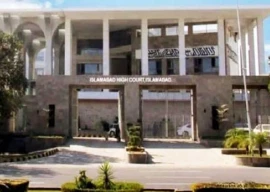
The Maha Sapta Sindhu has told his tale. I, who have walked along his banks in the far north where he is too young to father great civilisations, have also seen him in his full glory three thousand kilometres lower down. Then, in the fullness of his middle reach, he oversaw the birth and growth of the greatest civilisation the world has known, the Sindhu Valley Civilisation.
The most lasting impression of this great river left in the minds of the Aryan newcomers was one of a far-spreading, rushing stream of unrestrained strength and so they called him Sindhu — ocean or great river. Indeed, as recently as the 1820s when Alexander Burnes, the Scottish explorer, made his way up by boat from Thatta, he was amazed by the breadth of the river. For such a river, the name Sindhu was as apt as it could get.
What then of the word Indus? How did we ever arrive at it? Now, Sanskrit, the mother lode of all Indo-European languages, gives us the word Sindhu. When this word was transferred to Avestan (ancient Persian), a closely related language, the initial s was dropped and replaced by an h for the Sindhu to become Hindu. This is a common mechanism in the exchange of words from Sanskrit to Persian and we have countless words similarly transmogrified.
The asthan (home) where this great river flowed was thus Hindu Asthan or Hindustan. In the pre-classical period, the Persians were in close contact with the Greeks and it was only natural for the name of the Hindu River to transfer to that country. But the Greeks drop the initial 'h' and append an 's' ending to call our river the Indu or the Indus. As the Persians had named this great and wonderful land Hindustan, so followed the Greeks to call it India after the Indus, the father of our civilisation.
It is believed, incorrectly, that Alexander and his followers were the first Europeans to use the words Indus or India. Herodotus (born 484 BCE), known as the Father of History, who wrote his treatise a hundred years before the birth of Alexander, mentions the Indus.
In the 8th century CE, the Arabs used the term Sindh and Hind for the trans-Sindhu lands while the river itself was Mehran for them. No history explains where and how they got this name, but they did not refer to the people of this land as Hindus. By a most peculiar and unlearned twist of usage, the name of the Maha Sapta Sindhu in its Persian incarnation of Hindu came to describe the followers of the Sanatana Dharma. This was in the 11th century with the beginning of the predatory raids of the uncultured Turks. It became the norm forever after — its origin and real meaning forgotten.
Now, the Sindhu flows through Pakistan. And the land that was its asthan really was what we today call Pakistan. That is, we are the real India, the land of the Sindhu. If anything, the country that we so erroneously know by that name was Bharat, as it was called after the heroic prince of the Mahabharata.
If you ask me, they across our eastern border have now usurped upon our name. Or was it that the founding fathers of Pakistan, not having been grounded in classical history and geography, went amiss?
Whatever the case, as time passed we began to hold in spite the people called by the Persian pronunciation of the name of our river. As a young man. I was told that the meaning of Hindu in Persian is ‘a mean, deceptive, dark-skinned person.’ This was a falsehood for no Persian dictionary holds this meaning of the word.
The bottom line is that we who live upon the wide breast of the Sindhu, the father of a civilisation that goes far back into the mists of time, are the real Hindus. I, a child of the Maha Sapta Sindhu, should rightfully be called a Hindu.
Published in The Express Tribune, December 20th, 2010.













































COMMENTS (30)
Comments are moderated and generally will be posted if they are on-topic and not abusive.
For more information, please see our Comments FAQ